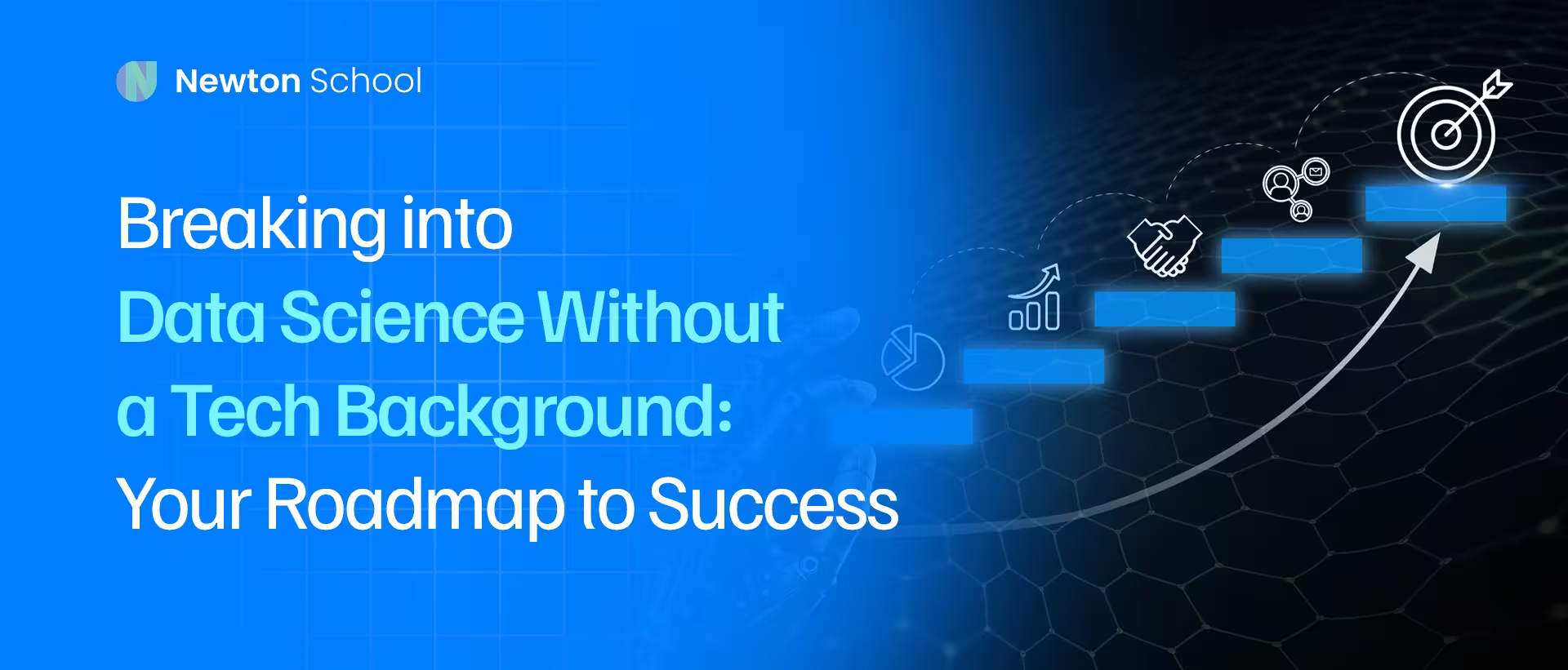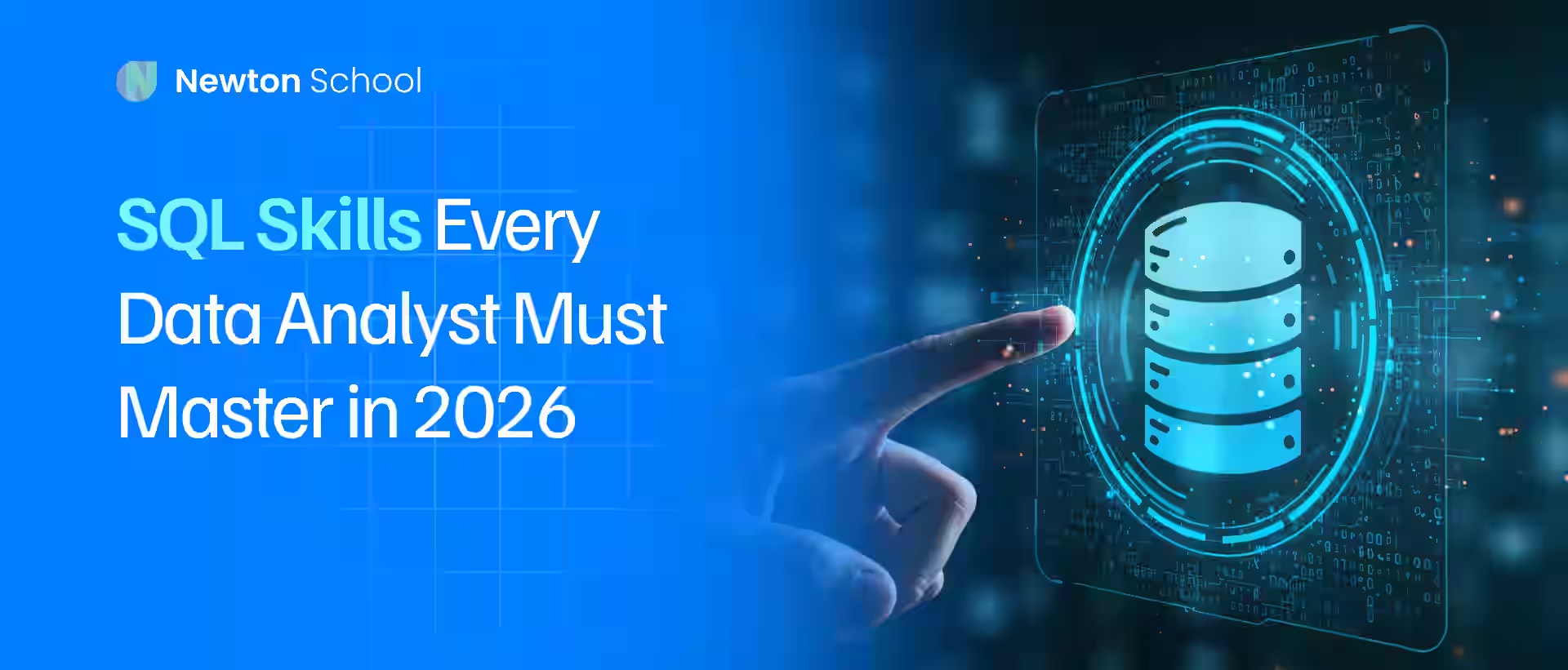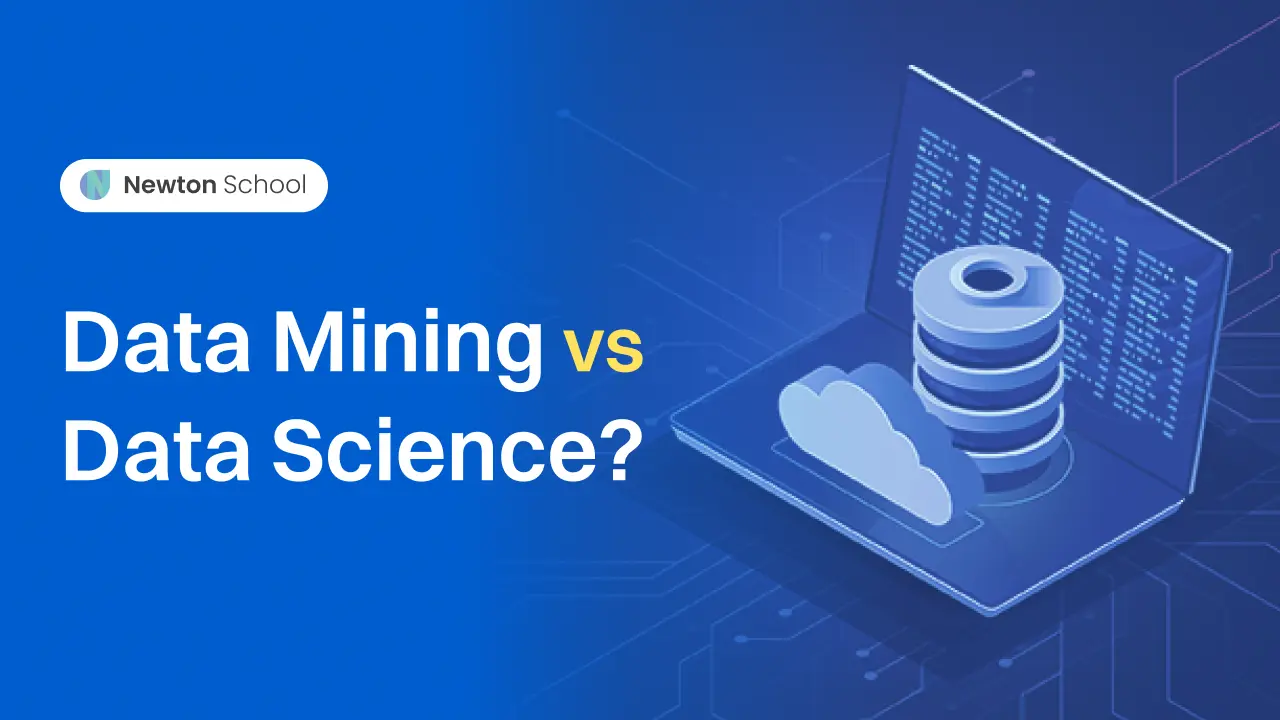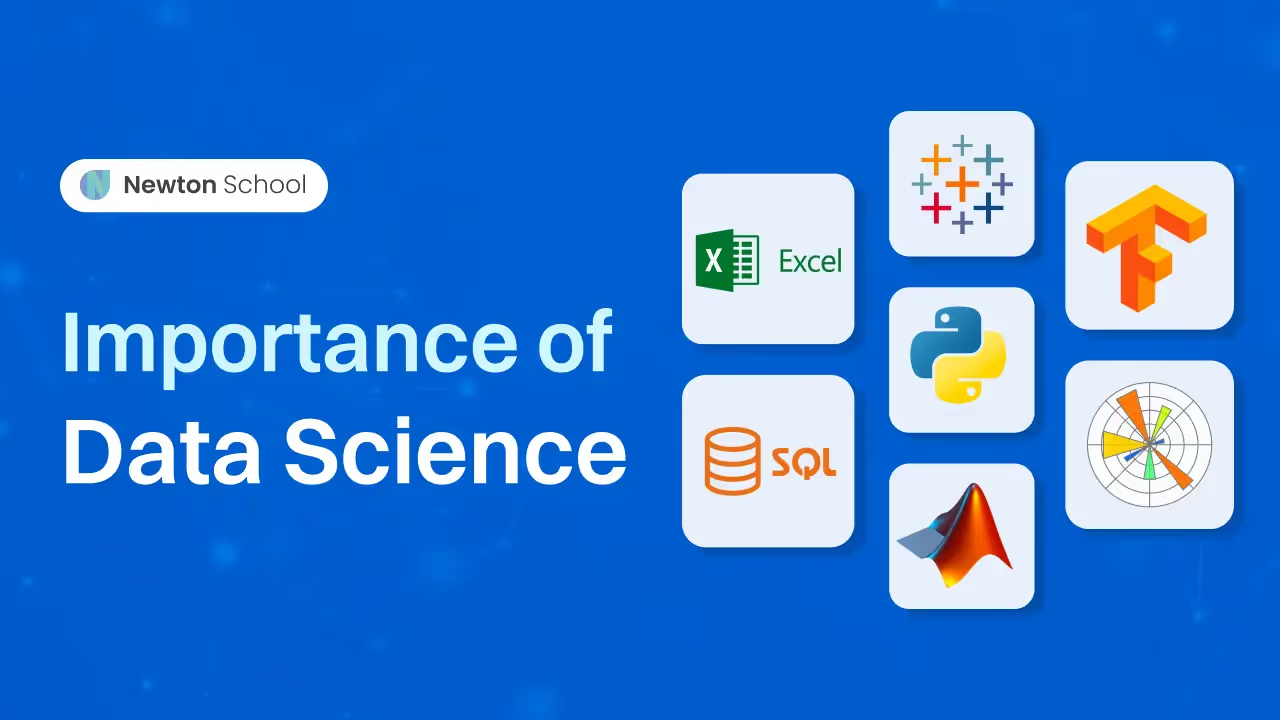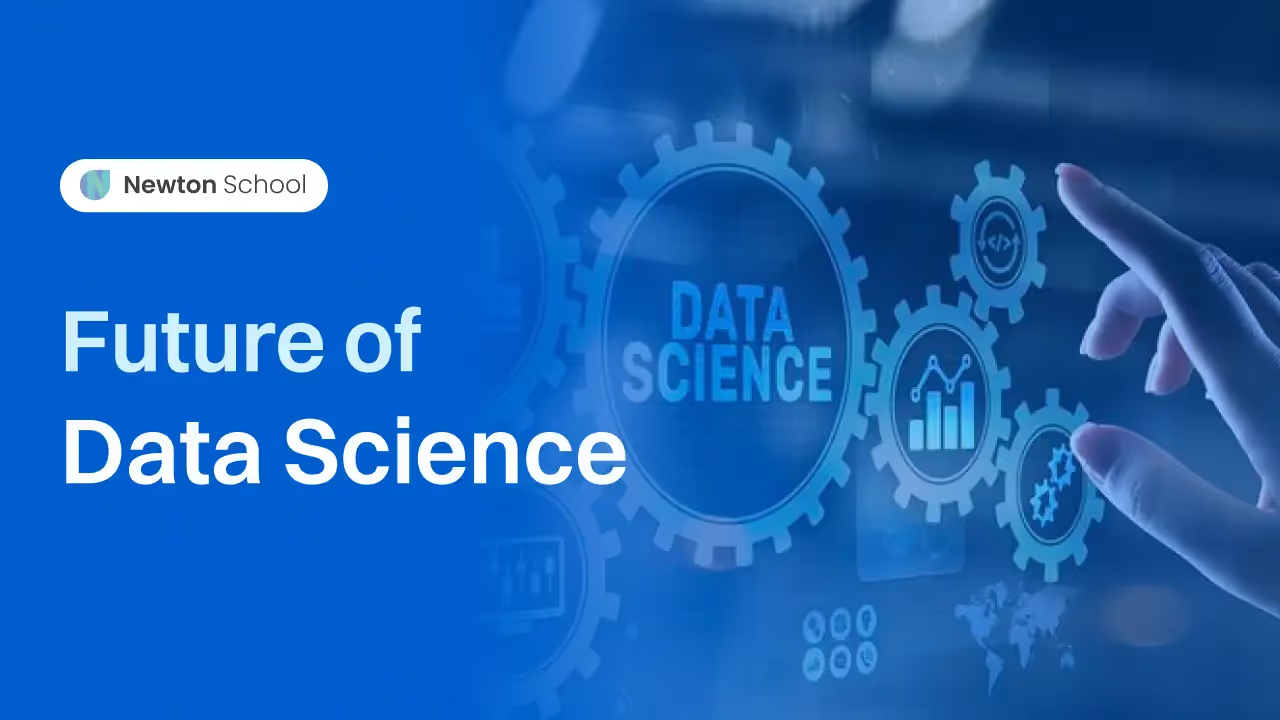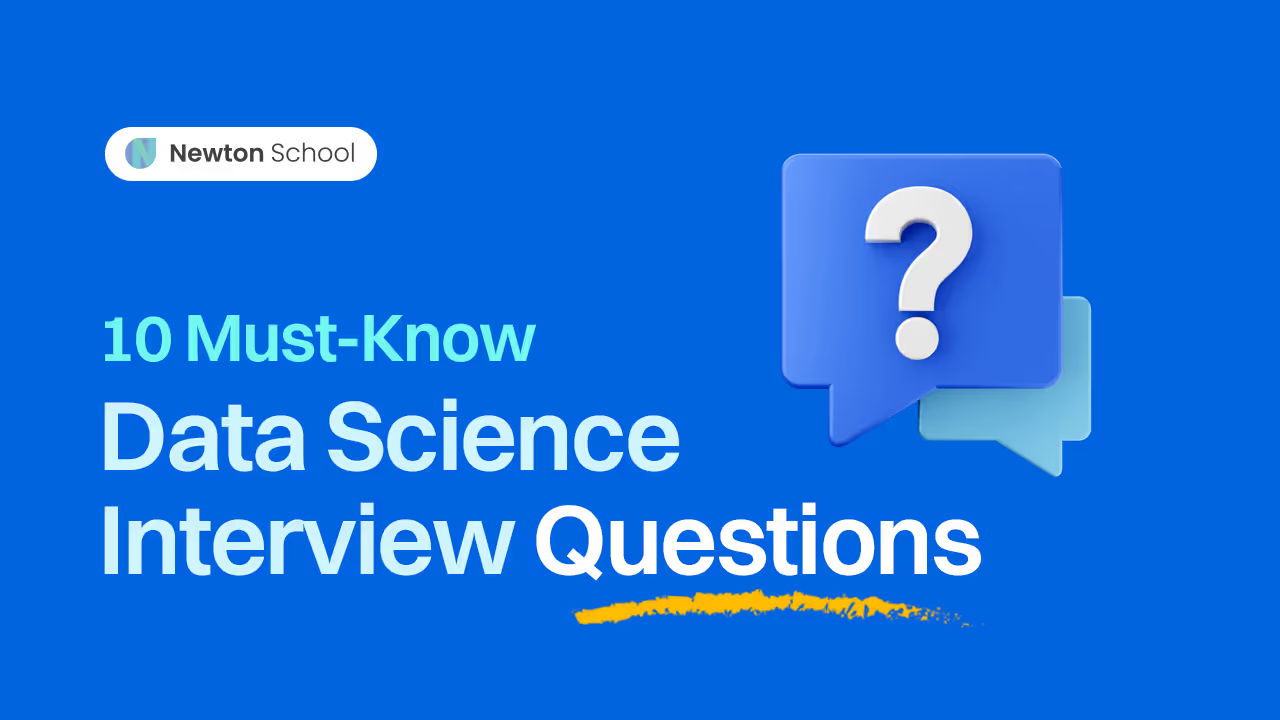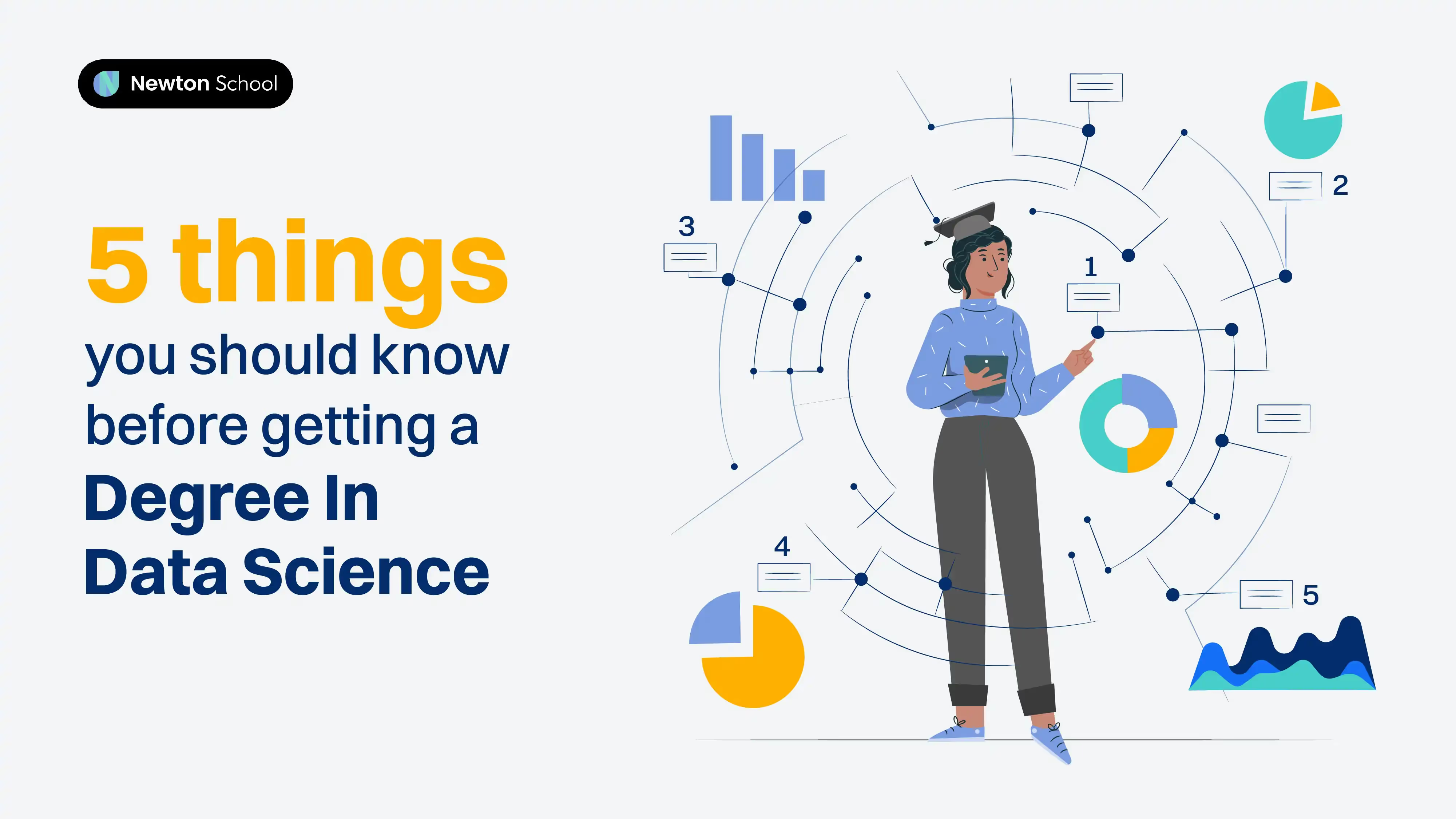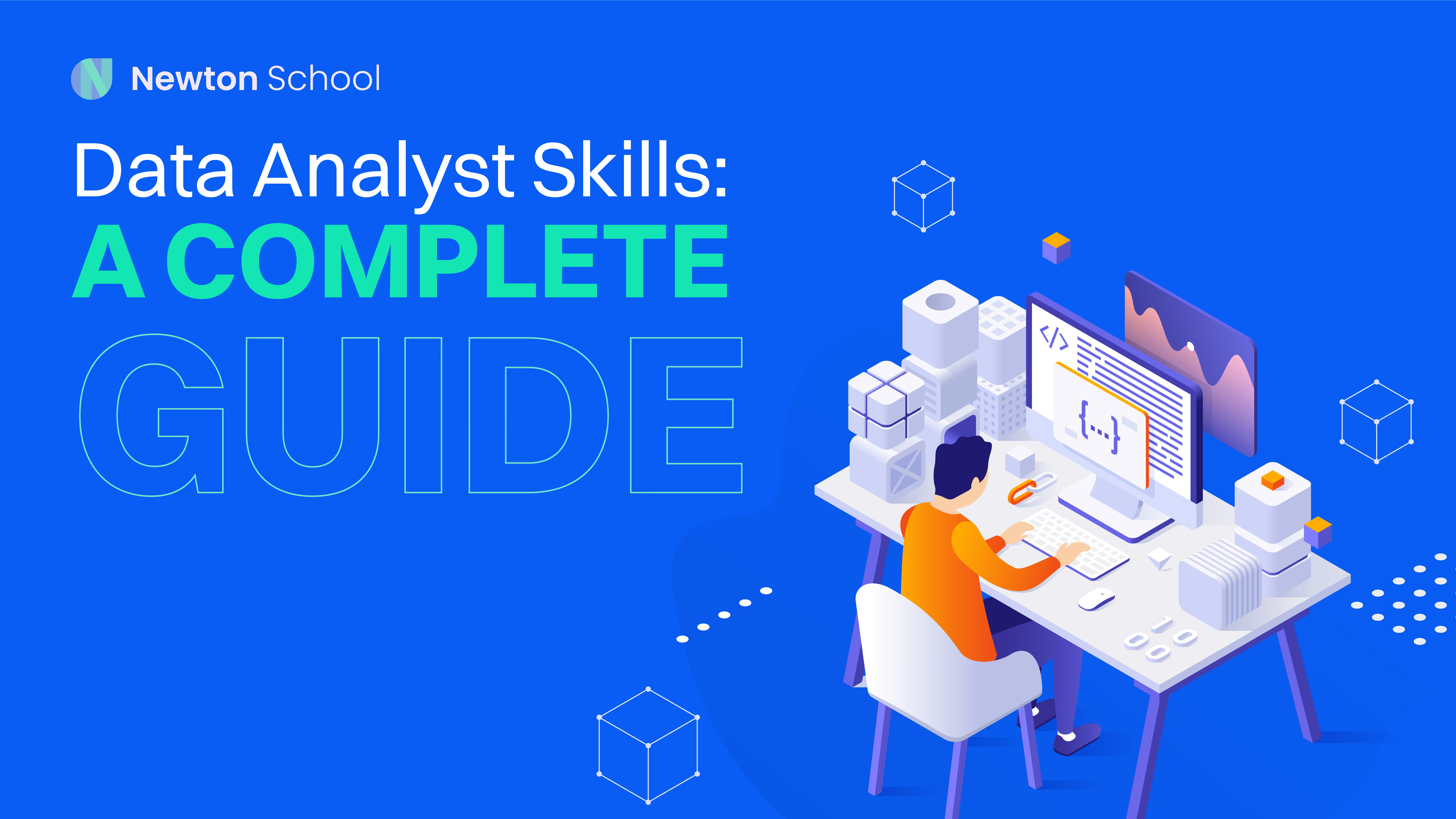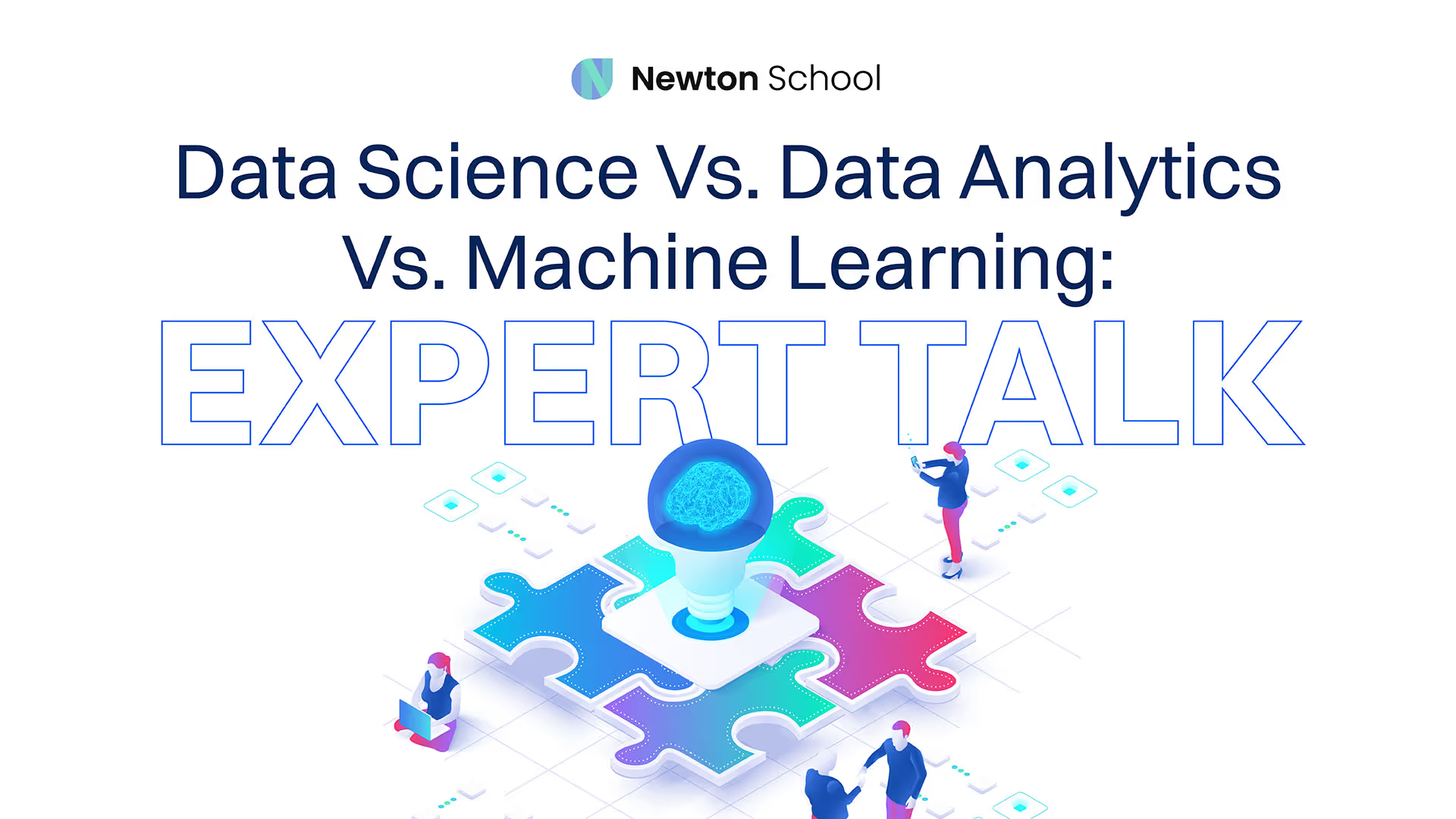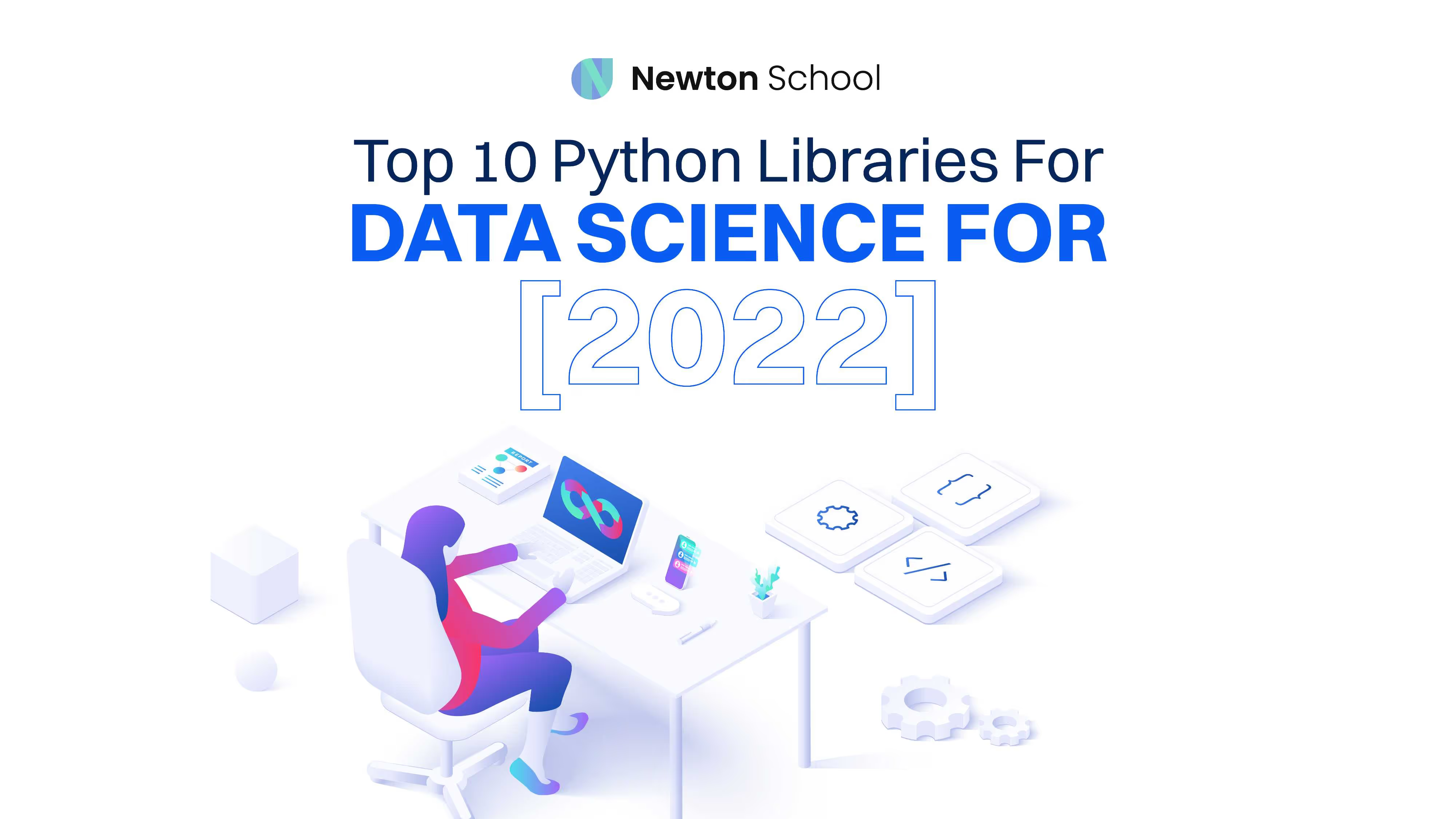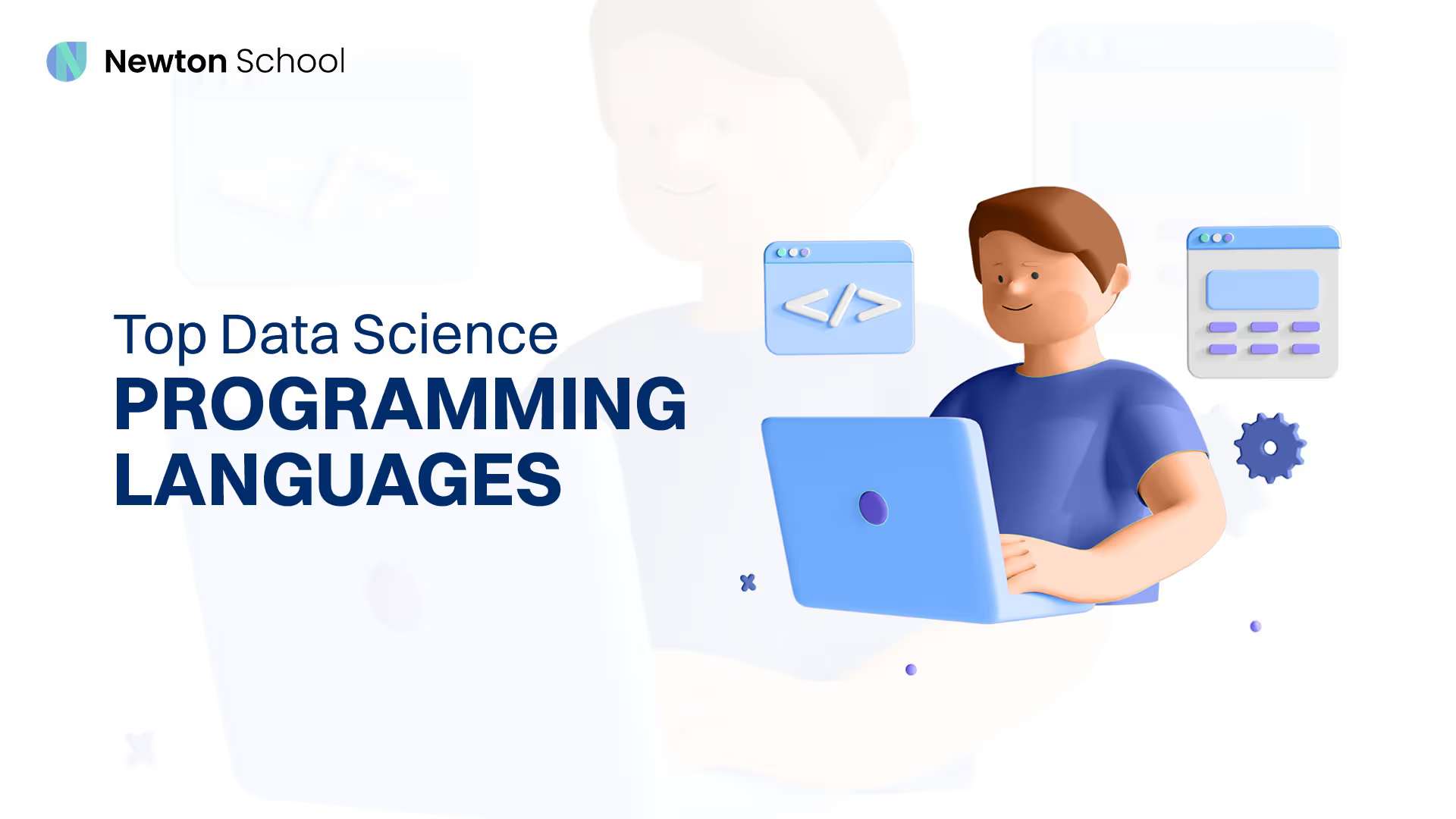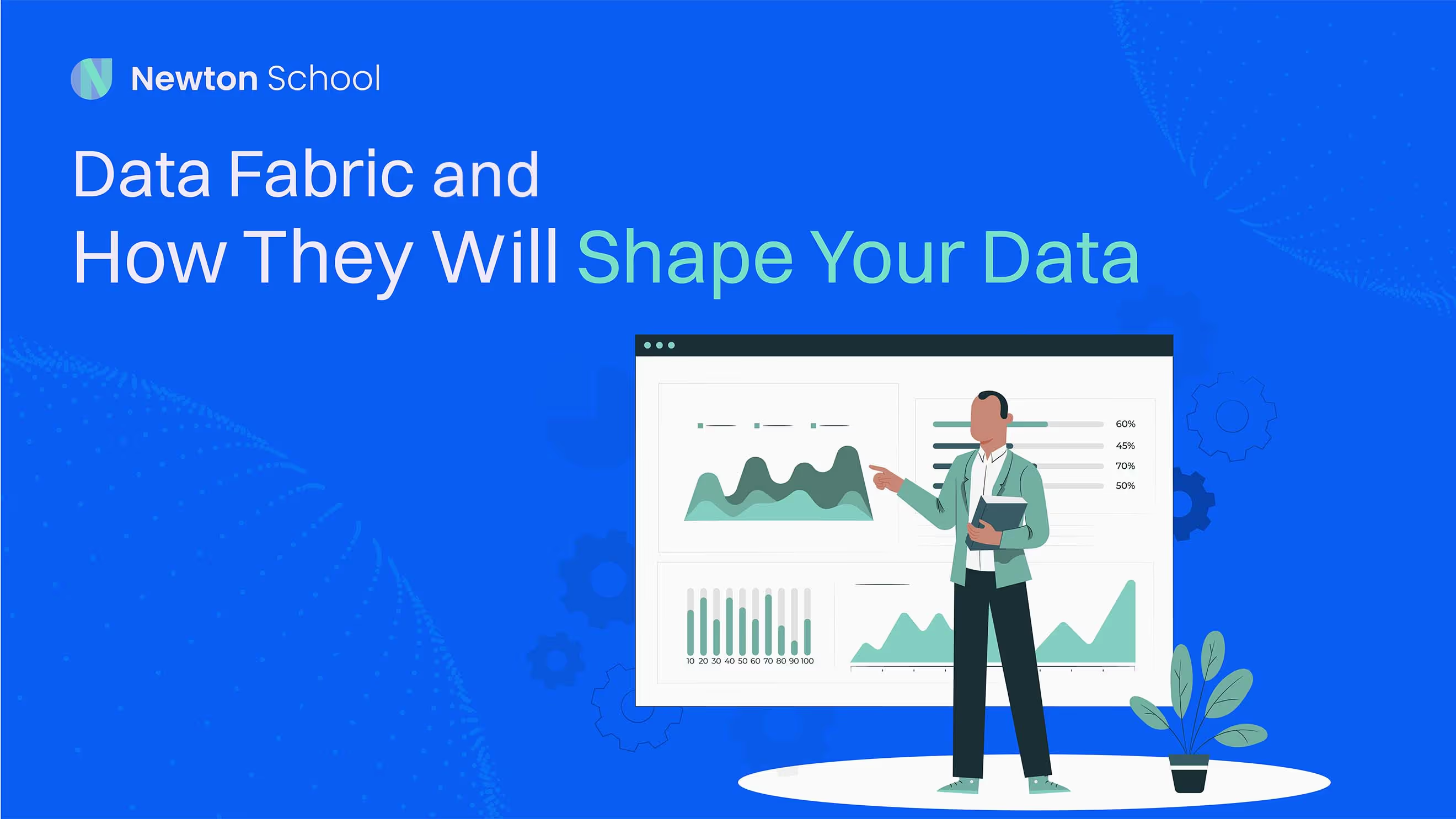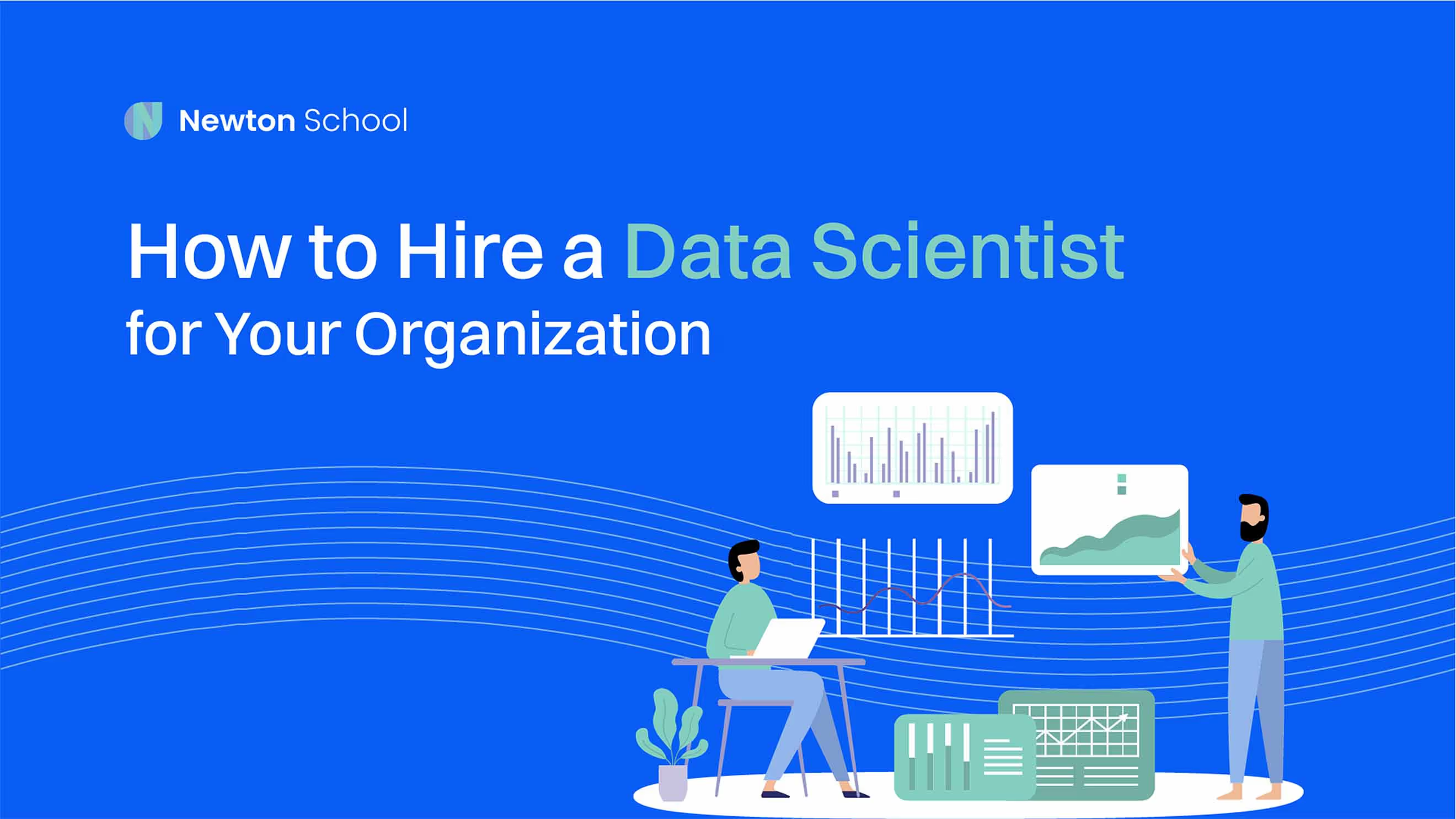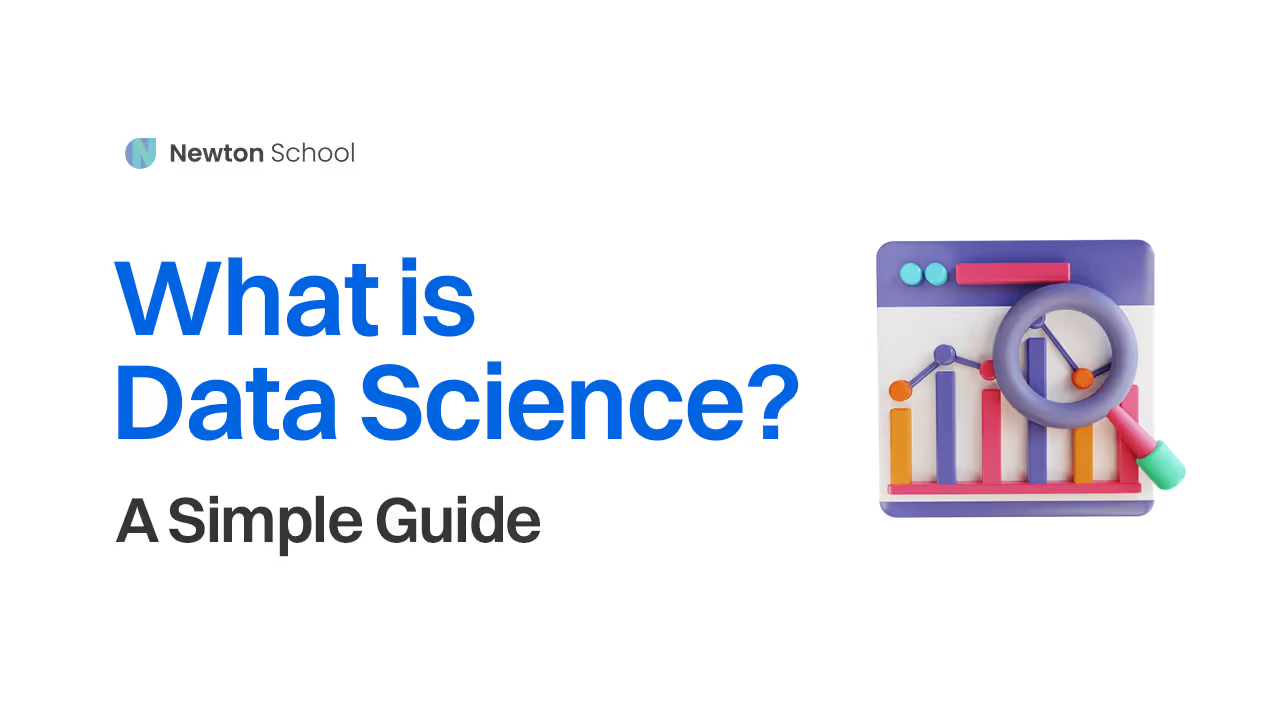
Growing internet penetration and significant technical breakthroughs in device connectivity are creating an exponential increase in the data flow.
It is anticipated that by 2025, the world will have nearly 175 trillion gigabytes of data circulating. So, what are we going to do with all of this data? How can we make it work for us? What are its practical applications? Data science can answer these problems.
With massive data points expected to be published in the market over the next decade, one may only envision the implications of actionable insights derived from that data.
As a result, in today's environment, the success of any business is closely connected to how they exploit the data they collect. It has become critical for enterprises throughout the world to translate data influx into business insights that enable more informed and smarter choices.
As a result, the need for Data Science experts has increased in recent years. But what is data science exactly? Here's an in-depth look into data science.
What is Meant by Data Science?
Don't we ever marvel at how Spotify manages to recommend the ideal music for us? Or how Netflix determines which shows we'll like binge-watching? Or how does Instagram come up with relevant ads almost every single time?
These social media and streaming platform powerhouses use data science to study our preferences to carefully choose information from their vast database that they believe will appropriately appeal to our interests.
Simply said, data science is the process of extracting useful information from massive amounts of noisy data utilizing tools and methodologies.
Data science is a field responsible for collecting, filtering, modelling, and analyzing data to assist companies in gaining actionable insights on business problems, supply chains, customer experience, and other key factors that would supplement their company operations. For example, Data Science assists Netflix in saving around USD 1 billion each year on user retention.
Who is in Charge of the Data Science Process?
1. Business Managers
Along with the data science team, these managers work towards identifying the challenge and developing an analytical strategy. They may be in charge of a business line, like finance, marketing, or sales, as well as lead a data science team.
2. IT Managers
They are responsible for the infrastructure and systems that are required for data science processes. They constantly oversee operations and asset utilization to guarantee that data science teams operate safely and efficiently.
3. Data Science Managers
They are in charge of managing the daily activities of the data science team. They are skilled team builders who can integrate project planning, monitoring, and team development.
But in this process, the data scientist is the most important player.
Who is a Data Scientist?
Data scientists mine company data for meaningful insights that top-level management and team leaders could use to craft strategies.
Predictive analytics and models are usually created by data scientists using statistical and machine learning techniques; they are then integrated into the final product in partnership with data and application developers.
Data Scientist Roles and Responsibilities
Simply put, a data scientist's job is to examine data and find insights that can be put into practice. Among the specific tasks are:
- Discovering the most in-demand business problems to solve using data analytics
- Choosing the appropriate data sets and variables
- Obtaining vast amounts of organized and unstructured data from many sources
- Data cleaning and validation to assure correctness, completeness, and consistency
- Creating and implementing models and techniques to mine huge data repositories
- Data analysis to find patterns and trends
- Data interpretation to uncover answers and opportunities
- Using visualization and other methods to communicate conclusions to stakeholders
What is the Use of Data Science?
Data science enables us to accomplish complex tasks that were previously impossible or took significantly more time and effort, such as:
- Detection of anomalies (crime, disease, and fraud,)
- Background checks (an email server identifying emails as "important")
- Predicting (revenue, profit and client retention)
- Pattern recognition (financial market patterns, weather patterns)
- Identification (visual, voice and text)
- Suggestions (based on learned preferences, referral systems can direct us to films, music, cafes and books)
- Regression (estimating delivery times, predicting property values based on attributes)
- Efficiency (planning ride-share pickups and package delivery)
Here are some more detailed examples of how firms utilize data science to innovate and disrupt their industries, develop new products, and make life easier.
1. Data Science in Healthcare
Numerous innovations in the healthcare sector have been made possible through data science. Medical practitioners are learning new methods to comprehend illness, practice preventative care, identify diseases more quickly, and explore novel treatment options thanks to a massive network of data now available.
2. Data Science in Self-Driving Cars
Data science is also making an appearance on the road. Several manufacturers, including Tesla, Volkswagen, and Ford, have used predictive analytics in their self-driving vehicles. Hundreds of tiny sensors and cameras in such vehicles convey information in real time. Self-driving vehicles may avoid risky lane changes, adapt to speed restrictions, and even drive passengers on the shortest route by using machine learning, data science, and predictive analytics.
Data Science Salary: Updated Salary for 2024
First and foremost, the Harvard Business Review has named Data Science the trendiest job of the twenty-first century. Data Science is likely the most discussed buzzword in the twenty-first century, and it has become a vital component of every firm globally.
This is because more firms are discovering that spotting patterns in data aids in the exploration of new markets, cost management, operational efficiency, and the creation of a competitive edge.
As a result, the need for data scientists is increasing. Wages for data specialists remain high because supply has not yet kept up with demand.
In fact, according to Glassdoor, the average annual base compensation for Data Scientists in the United States is $121,285. Given that the estimate was derived from a sample of 25,258 earnings, it has a high level of accuracy.
Furthermore, a yearly upgrade raises a Data Scientist's salary by USD 2,000-2,500 on average. By 2026, 11.5 million Data Scientist roles will be created. This is substantially quicker than the overall job growth rate. As a result, now is an excellent moment for anybody interested in pursuing a career in data science.
Skills Required for a Career in Data Science
What does a data scientist do? There is no one-size-fits-all solution. As a result, the specific skills and toolboxes required by data science experts differ by function.
However, there are certain general skills to develop that can help aspiring and beginner data science professionals succeed. These include:
1. Programming
Emerging technological disciplines like Artificial Intelligence, Machine Learning, and Data Science necessitate the use of strong algorithms to execute intelligent models. To obtain a thorough knowledge of how algorithms function, one must be fluent in programming languages.
Python and R are two of the most popular data science programming languages. In fact, according to a global poll conducted by Kaggle, 36% of data scientists choose the R programming language for data science.
2. Linear Algebra, Statistics, and Probability
If you want to work in data science, you must be familiar with descriptive and inferential statistics. Probability and linear algebra are also fundamental in molding our knowledge of complicated machine-learning algorithms.
3. Visualization tools, SQL, and Excel
PowerBI, Tableau, and other visualization tools may give a wonderful interactive interface to depict numerous data points, which can aid in doing preliminary analysis or just understanding the data.
SQL and Excel, in contrast, may assist us in comprehending data representation in tabular format or data frames that aid in data processing, wrangling, and so on.
A few essential soft skills, such as the following, are also frequently possessed by effective data scientists.
- Curiosity – the desire to solve problems and discover new things.
- Storytelling – the capacity to tell narratives and deliver data insights.
- Communication – the ability to work well with people and communicate challenges and solutions.
Why Should you Need to Do a Data Science Course?
From forecasting the best new diabetic treatment to recognizing and preventing national security threats, the capacity to translate a sea of data into actionable insights may have a tremendous impact. That is why corporations and government organizations are scrambling to employ data science specialists who can assist them in doing so.
However, as appealing and straightforward as this job appears, a career in data science takes strong dedication and continuous learning. The best way to get started is to pursue a certified data science course.
Newton School provides a Data Science & AI certification that is both highly specialized and user-friendly. After finishing this course, we will be having a thorough understanding of web development subjects and be job-ready. The courses are industry-specific and were created with employers in mind.

_converted.avif)
